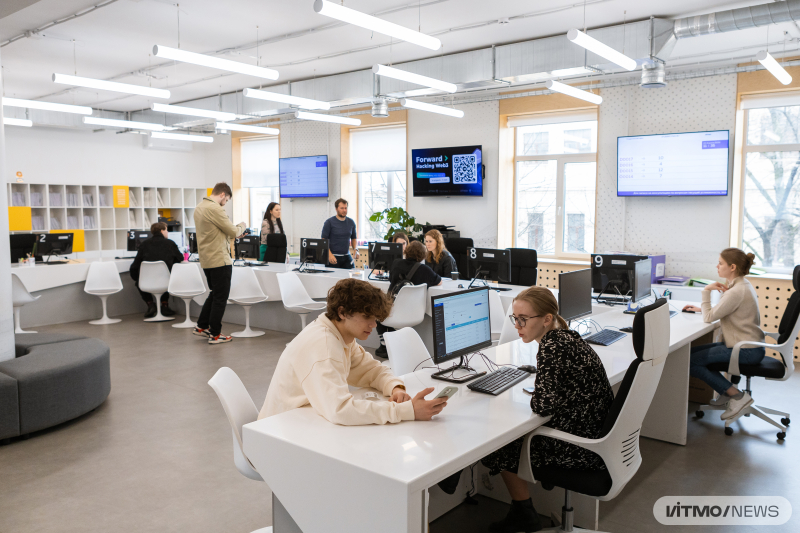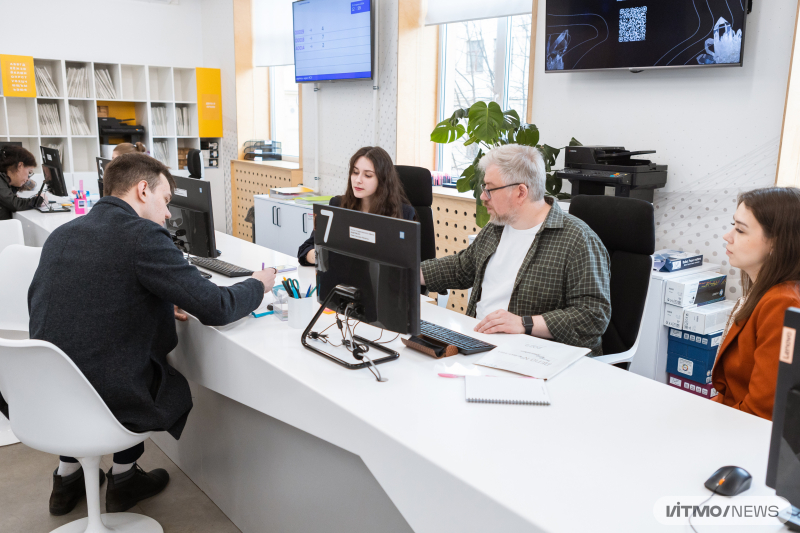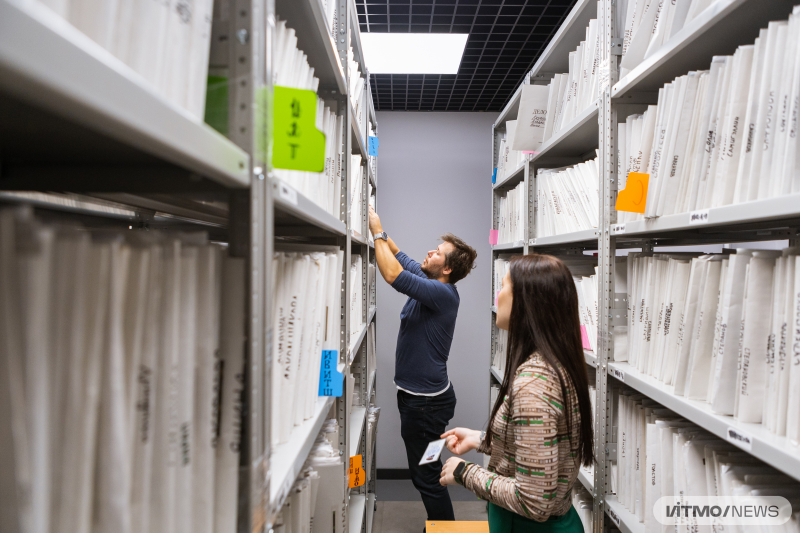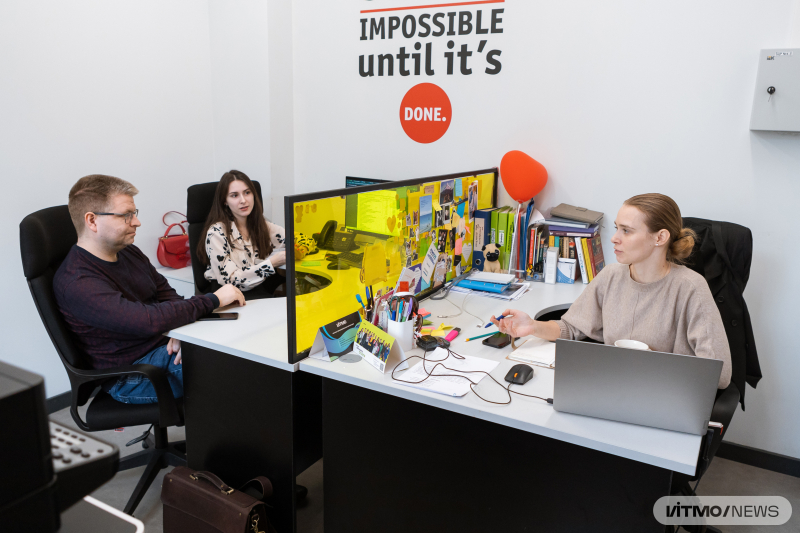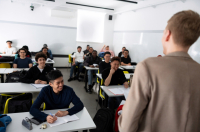Academic matters as a business process
Whereas earlier, students had to attend several departments if they wanted to get a certificate or transfer to another program, which took a lot of time, legwork, and queuing, now with any study-related question they can turn to the Student Services Office (SSO).
For instance, if a student wants to transfer credits for a course they took, they just need to apply for it online via the service my.itmo. Once the managers at the SSO receive the application, they check the attached documents and if those are in order, pass the information directly to the faculty responsible. There, the administrative staff gives the student a corresponding grade and notifies them about it online.
The service is made for the convenience of both students and staff. Earlier, the administrative staff at each faculty had to process all incoming applications, allocating time to clarifying the details and verifying the applications and documents. Now, all of these tasks are taken on by the SSO, which helps ease the workload of other university departments.
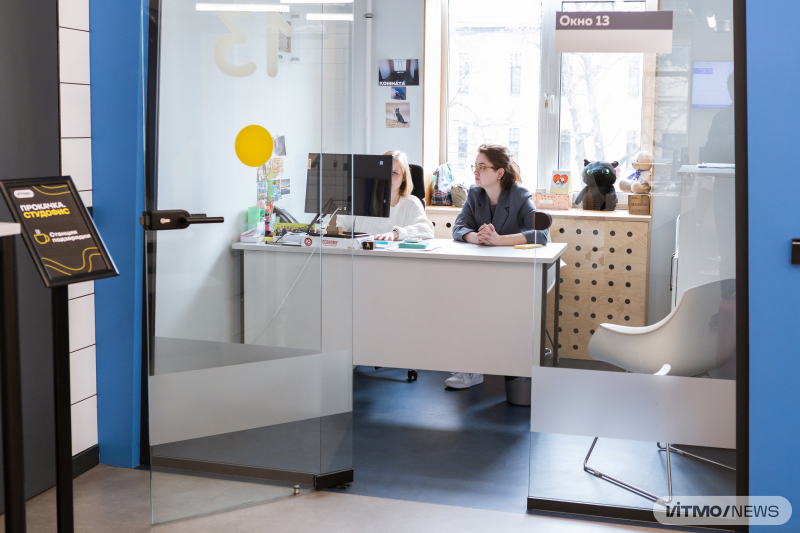
Student Services Office. Photo by Dmitry Grigoryev / ITMO.NEWS
The Student Services Office operates in two formats:
Front office. This is where students can come for an in-person consultation: for example, to ask about taking interim exams early, eliminating academic backlog, or transferring to another educational program. On average, such consultations last up to 20 minutes, depending on the question.
This is also where students can submit applications (e.g., for academic leave or transfer to another educational program) and pick up documents. At the SSO, students can also get or renew their student IDs, request for a certificate confirming their studentship or an excerpt from their gradebook, and more.
In 2023 alone, students turned to the office nearly 40,000 times (according to the data from SSO’s digital queue). On average, around 170 students attend the office daily (at peak times, the number exceeds 800).
Back office. There, managers process the applications that were filed online, as well as answer calls and emails.
“Wherever possible, we try to employ digital applications. This way, students can solve the majority of issues online from anywhere. For those who prefer in-person communication, we have the front office. This helps us to ensure that our work is seamless: everyone is responsible for their own tasks; at the same time, the service is convenient for our students,” explains head of the SSO Elena Borisova.
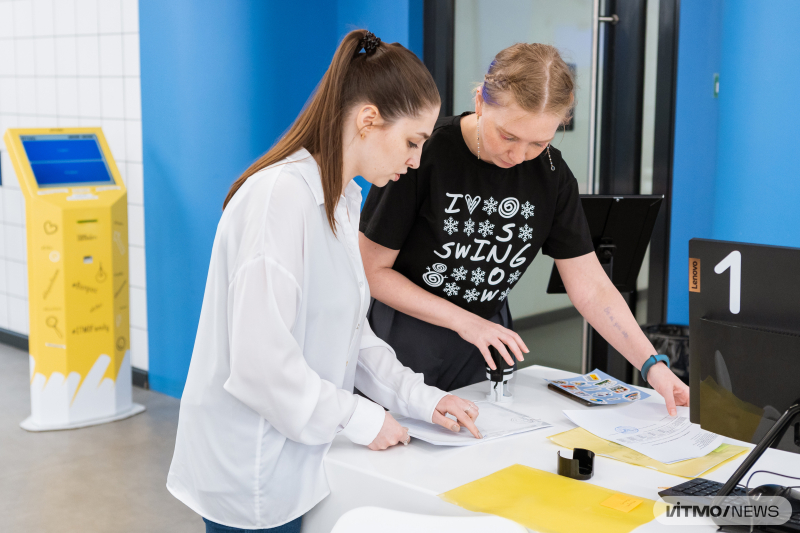
Student Services Office. Photo by Dmitry Grigoryev / ITMO.NEWS
How and why did deans join the Student Services Office
With time, the Student Services Office keeps growing, its team and workload expanding – and its toolkit gaining new approaches. According to Elena Borisova, constant communication with other university departments is essential: the more efficient it is, the better will the SSO be at helping students.
Recently, ITMO has conducted an experiment aiming to introduce staff from other departments to the SSO’s practices: for a week, deans, deputy deans, faculty managers, heads of educational programs, and even the university’s rector and first vice rector joined the team of the office. They all communicated with students and prepared documents for them offline and online, assisted by the office’s managers.
According to ITMO Rector Vladimir Vasilyev, this “role switch” was a great HR practice for the university that helps its staff get deep into the workflow of other departments in order to better understand the tasks faced by the university.
“I have never seen a switch like this, where deans, rectors, and vice rectors take on other responsibilities at Russian universities. It’s a great practice, a bonding experience for ITMO. Moreover, thanks to this project we were able to truly see how much workload is managed by the Student Services Office,” shared Dr. Vasilyev.
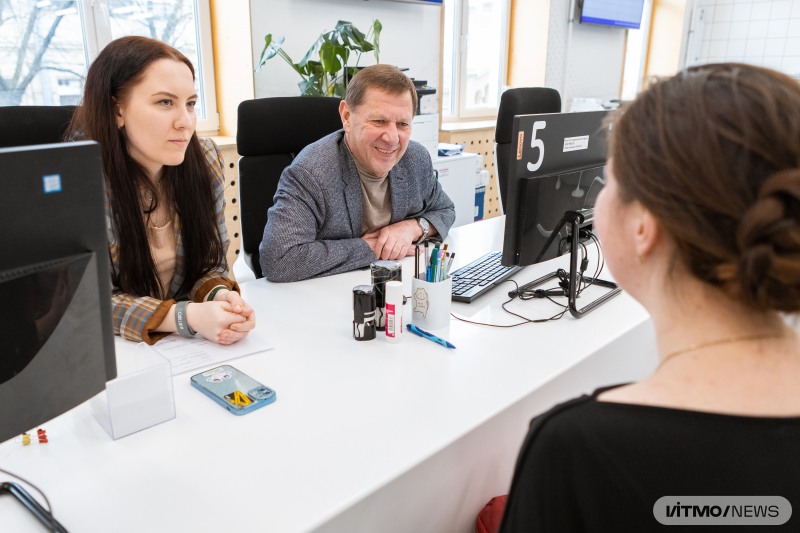
ITMO Rector Vladimir Vasilyev at the Student Services Office. Photo by Dmitry Grigoryev / ITMO.NEWS
The outcome
ITMO regularly hosts open project defenses, conferences, and meetups where anyone can come with their idea. However, as said by First Vice Rector Daria Kozlova, the project Level-Up. The Student Services Office is another important platform where students can discuss their ideas for the university’s development with ITMO management.
“This project is an opportunity to listen to students, discuss the matters that we don’t have time to discuss during class, and determine how ITMO can become even better for our students. The growth of our university is a process, where both student and staff participate actively. It is important for us that later, when they graduate, our students wanted to return to ITMO and develop the university in their new capacity,” said Dr. Kozlova.
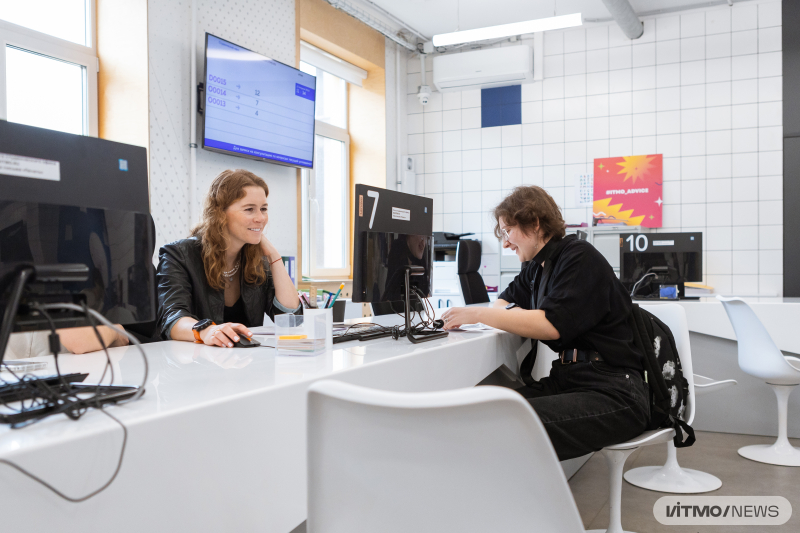
Daria Kozlova at the Student Services Office. Photo by Dmitry Grigoryev / ITMO.NEWS
For deans, the experience was a chance to reevaluate the contributions of their colleagues and their own work.
“One of our students came to the office in person to understand how to transfer credits for a course and reach the lecturers from another faculty. Even though he could clarify this issue with the program’s manager, he decided to visit the SSO himself. This case showed us how we could share information more efficiently in order to help our students solve important issues quickly and conveniently,” shared Andrey Karsakov, the head of ITMO’s Game Development School.
“The staff of the Student Services Office are wonderful people who are great to work with. Talking to them, you can’t help but adopt their positive outlook and realize that all problems can be solved. Thanks to this project, we can all leave our “habitats” to go and explore life at other departments. If we don’t do this, our community will stratify: students, lecturers, and administrators will each exist within their communities, never knowing each other or their problems. That’s why it’s important to mix different departments, so that we get better at listening to and actually hearing each other,” added Anton Pyrkin, the Dean of the Faculty of Control Systems and Robotics.
